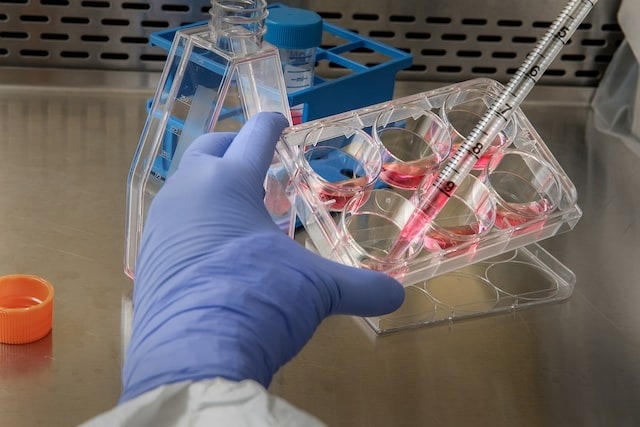A naturally occurring substance known as hydroquinine has been discovered by researchers to have bacterial killing ability against a variety of pathogens.

Image Credit: University of Portsmouth
One of the biggest global dangers to public health is antimicrobial resistance. It happens when bacteria, viruses, fungi, and parasites evolve over time and stop responding to treatments, making infections challenging to treat. As a result, the creation of novel antimicrobial medications to fight infections is urgently needed.
Researchers from the University of Portsmouth and the Naresuan and Pibulsongkram Rajabhat Universities in Thailand recently investigated the potential antibacterial effects of the substance hydroquinine, which is found in the bark of various plants. Although hydroquinine is previously known to be effective against human malaria, little research has been done on its drug-resistant characteristics up until this point.
The research, which was published in the journal Tropical Medicine and Infectious Disease, suggests that the organic chemical may merit further clinical study due to its antibacterial capabilities.
Using bacterial killing experiments, we found that hydroquinine was able to kill several microorganisms including the common multidrug-resistant pathogen pseudomonas aeruginosa. Characteristically, we also discovered that one of the main mechanisms used by these bacteria to escape killing activity of the drug was upregulated with treatment - indicating a robust response from the bacteria."
Dr Robert Baldock, School of Pharmacy and Biomedical Sciences, University of Portsmouth
Dr Baldock adds, “By studying this compound further, our hope is that it may in future offer another line of treatment in combatting bacterial infections.”
More than 2.8 million infections are caused by drug-resistant bacteria, which also cause 35,000 fatalities each year. Common “superbugs” resistant to antibiotics are the root cause of pneumonia, UTI, and sepsis. According to statistics, P. aeruginosa bloodstream infections have significant death rates of between 30 and 50%.
The report suggests more research be done on hydroquinine’s antimicrobial resistance traits and negative effects.
Our future research aims to uncover the molecular target of hydroquinine. This would help our understanding of how the compound works against pathogenic bacteria and how it could potentially be used in a clinical setting.”
Dr Jirapas Jongjitwimol, Department of Medical Technology, Naresuan University
Source:
Journal reference:
Rattanachak. N., et al. (2022) Hydroquinine Possesses Antibacterial Activity, and at Half the MIC, Induces the Overexpression of RND-Type Efflux Pumps Using Multiplex Digital PCR in Pseudomonas aeruginosa. Tropical Medicine and Infectious Disease. doi.org/10.3390/tropicalmed7080156.